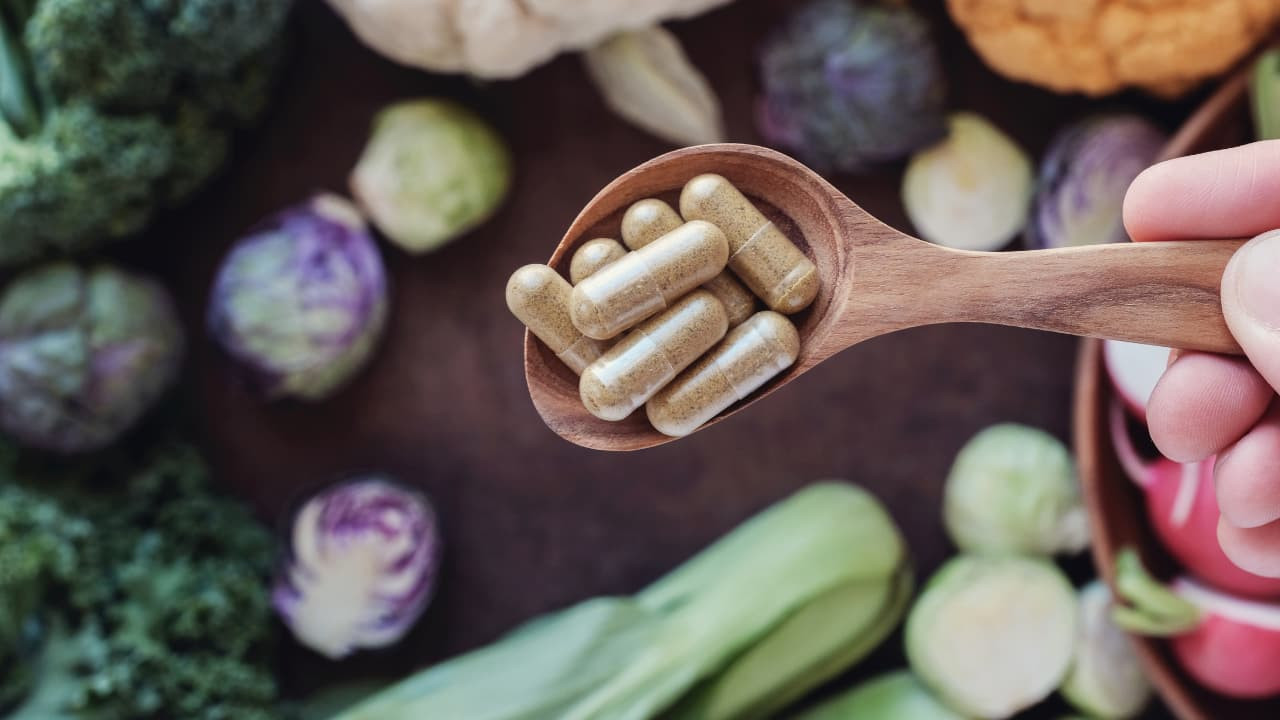Vegetarian supplement needs
Vitamin supplement manufacturers are keener than ever to access the vegetarian market, not only because of its growth over the past few years, but also due to increased education surrounding the necessity of supplements to a healthy vegetarian lifestyle. Many essential vitamins and minerals are available in a number of vegetarian foods, however, the depletion of stores of vital vitamins can be rapid once a vegetarian or vegan diet is begun. Often, they cannot be maintained through diet alone. In addition, it’s important for vegetarians to take note of the supplements themselves. Some will be surprised to hear that many of the supplements you find on shop shelves are not actually vegetarian-friendly.
So what, exactly, are the most vital supplements for vegetarians? Which should you focus on manufacturing?
Vitamin B12
The body needs vitamin B12 to keep nerve and blood cells healthy and energised. Vitamin supplement manufacturers have been providing vitamin B12 to vegetarian consumers for years because this vital nutrient cannot be found in many plant-based foods, unless they have been fortified. Vegans and vegetarians need B12 supplements to avoid serious nerve damage. Most vitamin supplement manufacturers will offer B12 in their multivitamin products, though many consumers prefer to opt for a supplement that solely provides vitamin B12.
Iron
Iron can be found in a range of plant-based foods. From lentils, soybeans and grains, to nuts and seeds and vegetables. That being said, compared with meat sources, the iron from these plant sources cannot be absorbed as easily by the body. Many vegetarians and vegans, therefore, need direct access to the different forms of iron, so will turn to nutritional supplements. Iron is critical in building up red blood cells and ensuring they can carry oxygen throughout the body, so keeping an eye on iron intake is a must for vegetarians wanting to stay healthy, energised and happy.
Calcium
We all know calcium is necessary for the growth and strengthening of bones, but this vital mineral also ensures our blood clots at the right time, our nerves can function, and our muscles can contract. While vegetarians can still gain calcium from milk, cheese and butter, vegans face a real risk of calcium deficiency. Some calcium can be gained from dark leaves and some legumes. However, it is incredibly difficult to keep your calcium levels through these small doses alone. Vitamin supplement manufacturers have been boosting their mineral supplement production, including calcium supplements, over the past decade in order to appeal to the needs of this growing vegan market.
Vitamin D
If there’s one product vitamin supplement manufacturers can rely on, it’s vitamin D. Sought by meat eaters and vegetarians alike, vitamin D is necessary for the absorption of minerals by the intestines. On top of other vital bodily functions, vitamin D keeps a number of diseases at bay and ensures bone strength. Vegetarians face difficulty in keeping their vitamin D levels topped up. Fortified foods often provide a source of vitamin D, as well as milk, cereals and orange juice. Taking a vitamin D supplement is a sure-fire way of knowing you’re getting the help your body needs to break down essentials minerals. Without these supplements, vegetarians and vegans can run the risk of serious illness.
Protein
Impromptu, unplanned vegetarian diets are often the ones to suffer protein deficiencies. Without the necessary amounts of meat and dairy offering a healthy amount of protein, vegetarian bodies cannot repair and replenish cells. Protein is necessary for the breaking down of enzymes, the transportation of oxygen around your body, the development and strengthening of bones, and the repair and functioning of muscles. It’s one of the very foundations of our bodies, without which serious illness would occur rapidly. While alternative protein sources such as beans, lentils, nuts and dairy can provide a small amount of necessary protein, this is often not as concentrated as our bodies need it to be. Vitamin supplement manufacturers looking to target the vegetarian and vegan market, therefore, may also wish to branch out into protein manufacturing too.


 Vitamin supplement manufacturers have been providing vitamin B12 to vegetarian consumers for years because this vital nutrient cannot be found in many plant-based foods.
Vitamin supplement manufacturers have been providing vitamin B12 to vegetarian consumers for years because this vital nutrient cannot be found in many plant-based foods.
